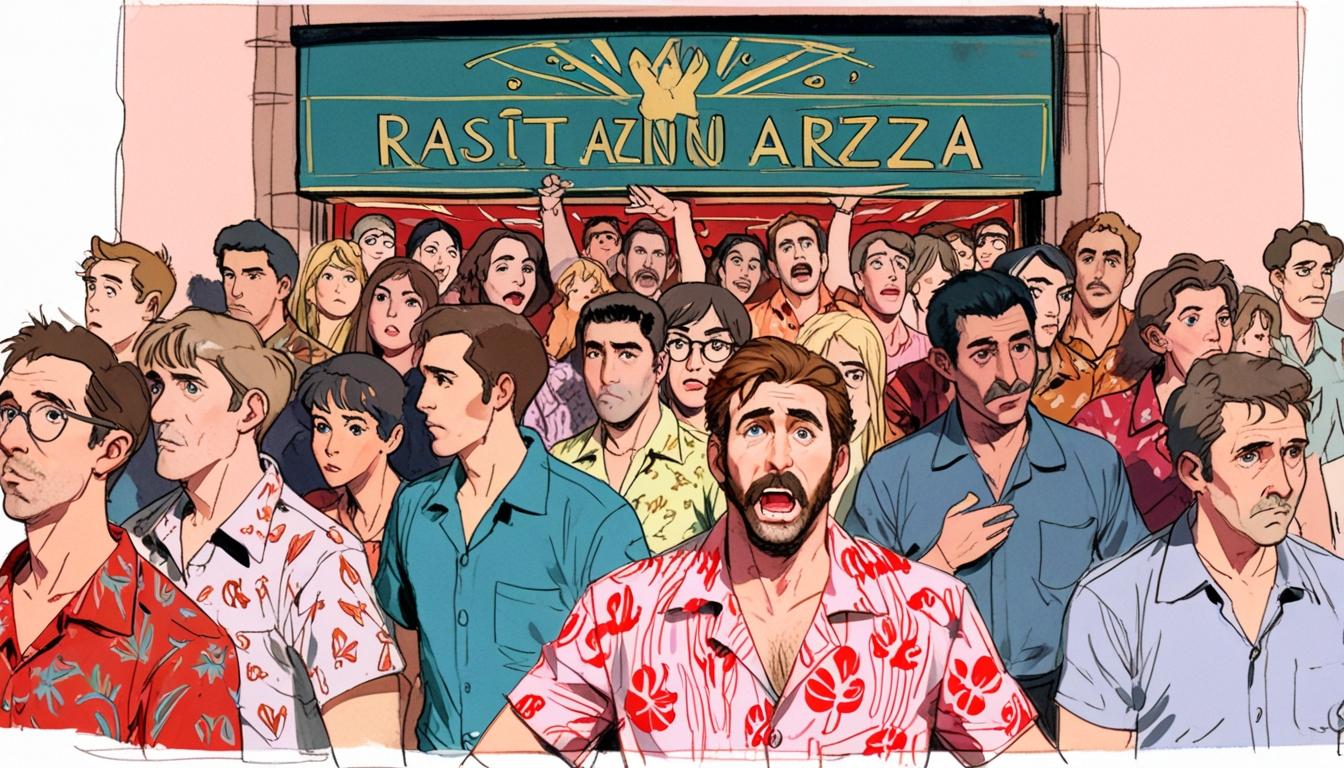On a vibrant late afternoon in Soho, central London, a gathering of over a hundred people formed outside a cinema, many of whom bore a striking resemblance to actor Nicolas Cage. The crowd, animated and diverse, showcased various interpretations of Cage’s cinematic personas, including a moustachioed “Raising Arizona Cage” dressed in a Hawaiian shirt and several others resembling his character from “Con Air,” complete with white vests and one carrying a toy bunny. Some participants exhibited a closer likeness to Cage than others, with a few jestingly compared to his character from “Face/Off,” who famously swapped his features with those of John Travolta.
This eclectic assembly was not merely a random spectacle but a promotion tied to the release of Cage’s latest film, “The Surfer,” which has been described as “gloriously demented” by The Guardian. To garner attention in an increasingly competitive entertainment landscape, public relations strategies have evolved, with celebrity lookalike contests emerging as quirky and effective methods of engagement.
Daniel Breuer, embodying the “Raising Arizona Cage,” expressed his excitement at having his likeness celebrated. “I've had a whole lifetime of ridicule and this is my moment of glory,” he stated, adding that Nicolas Cage has remained a constant point of comparison throughout his life. Breuer works in the music industry and remarked that he is often likened to various celebrities, including Al Pacino and Jerry Seinfeld.
Patrick Doran, an actor and web designer, shared a similar sentiment, recounting how he has frequently been told he resembles a younger Cage. "I take it as a great compliment," he remarked.
The trend can be traced back to 23-year-old American YouTuber Anthony Po, who last October garnered widespread attention by advertising a Timothée Chalamet lookalike contest across New York. The event drew numerous contestants as well as the actual Chalamet, leading to a chaotic but memorable conclusion that included several arrests.
Following the success of Po’s initiative, Dublin hosted a Paul Mescal doppelganger contest, which offered modest prizes that included pints and sausages. This trend quickly expanded, with London organising a Harry Styles lookalike contest that offered financial and product-based rewards. Other cities joined the fray with various themes and prizes, including a Jeremy Allen White contest in Chicago, and a Zayn Malik lookalike event in New York that generated some confusion regarding the winner's One Direction fan knowledge.
Glen Powell endorsed his own lookalike contest in Austin, Texas, inviting participants to help him create “a criminal Glenterprise.” The contest included a video call from Powell himself to judge the event, underscoring the participatory nature of these gatherings.
By December, the trend reached a peak when Drake announced a $10,000 prize for the winner of his lookalike contest in Toronto. The winner, Makayla Chambers, sported pigtails and a drawn-on beard, further illustrating the diverse interpretations of celebrity likeness that these contests encourage.
Amidst these developments, Cage's publicists ran the London event, offering awards for categories such as the “People’s Cage” for the best overall lookalike, the “Cagiest Cage” for the best cosplay, and the “Ragiest Cage.” Breuer was ultimately crowned the first prize winner, which included a life membership to the historic Prince Charles cinema. Celebrating his victory, he likened it to winning an Oscar, referencing Cage’s own accolade for “Leaving Las Vegas.” Breuer acknowledged feeling intimidated by some of the other competitors but asserted confidence in his performance, claiming, “I knew I had the highest kick in the game.”
Source: Noah Wire Services
